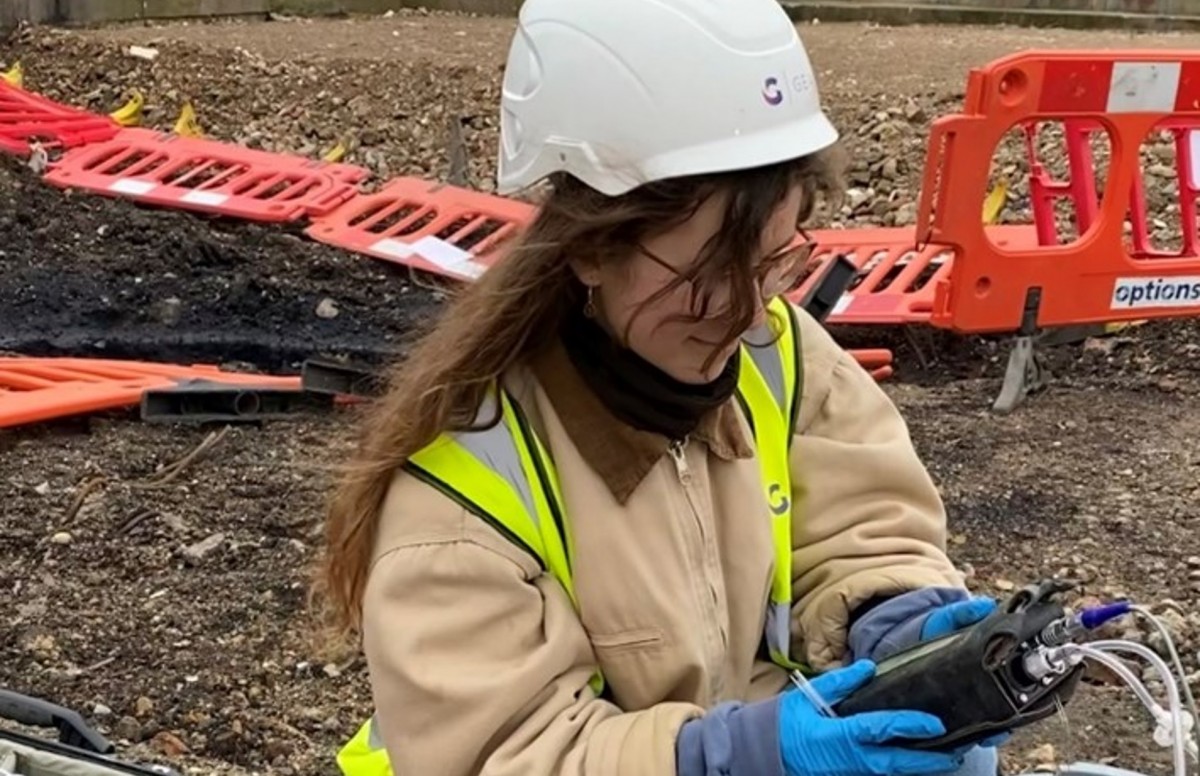Geotheta Things To Know Before You Get This
Geotheta Things To Know Before You Get This
Blog Article
Excitement About Geotheta
Table of ContentsThe Best Strategy To Use For GeothetaSome Ideas on Geotheta You Need To KnowThe Of GeothetaFascination About GeothetaGeotheta Can Be Fun For Everyone

They carry out website examinations, accumulate examples, do lab examinations, and evaluate data to evaluate the viability of the ground for construction projects - Engineer of Record. Based on their findings, geotechnical designers offer recommendations for structure design, incline stability, preserving frameworks, and mitigation of geotechnical risks. They work together with various other experts, such as engineers, architectural engineers, and building groups, to make certain that geotechnical factors to consider are incorporated right into the overall task design and application
By examining the habits and properties of soil and rock, they can identify prospective geotechnical threats such as landslides, dirt negotiation, or slope instability. Their competence aids protect against failures or crashes that could jeopardize lives and residential or commercial property. Below are some in-depth duties and obligations of a geotechnical engineer: Site Examination: Geotechnical engineers conduct website examinations to collect data on subsurface conditions.
They interpret the information to comprehend the buildings and behavior of the soil and rock, including their strength, leaks in the structure, compaction attributes, and groundwater conditions. Geotechnical Analysis and Layout: Geotechnical designers examine the data collected throughout site investigations to analyze the stability and viability of the website for construction jobs. They perform geotechnical calculations and modeling to assess aspects such as birthing capacity, negotiation, incline security, side planet stress, and groundwater circulation.
About Geotheta
Foundation Design: Geotechnical designers play a critical function in designing structures that can safely sustain the intended framework. They examine the soil conditions and tons demands to establish the suitable structure kind, such as shallow foundations (e.g., grounds), deep structures (e.g (https://geotheta.jimdosite.com/)., piles), or specialized strategies like soil renovation. They think about variables such as negotiation limits, birthing capacity, and soil-structure communication to develop optimum structure designs
They review construction plans, screen site activities, and perform field examinations to validate that the layout referrals are followed. If unanticipated geotechnical problems occur, they analyze the situation and offer recommendations for removal or changes to the style. Risk Analysis and Reduction: Geotechnical engineers analyze geotechnical risks and dangers connected with the job site, such as landslides, liquefaction, or dirt erosion.

Partnership and Interaction: Geotechnical engineers work carefully with other professionals included in a job, such as engineers, structural engineers, and building groups. Reliable interaction and partnership are important to incorporate geotechnical factors to consider into the total project style and building process. Geotechnical designers supply technological expertise, answer inquiries, and guarantee that geotechnical needs are met.
See This Report about Geotheta
Here are some types of geotechnical designers: Foundation Engineer: Foundation engineers focus on developing and evaluating structures for frameworks. They analyze the dirt conditions, tons requirements, and website characteristics to figure out the most suitable structure kind and design, such as shallow foundations, deep foundations, or specialized strategies like heap structures.
They assess the aspects affecting incline security, such as dirt homes, groundwater conditions, and incline geometry, and develop techniques to protect against slope failures and alleviate risks. Quake Designer: Quake engineers concentrate on examining and developing frameworks to stand up to seismic pressures. They examine the seismic risk of a site, evaluate soil liquefaction capacity, and establish seismic layout requirements to make certain the safety and security and durability of structures throughout quakes.
They do field testing, collect samples, and examine the gathered data to characterize the soil homes, geologic formations, and groundwater problems at a website. Geotechnical Instrumentation Designer: Geotechnical instrumentation designers concentrate on surveillance and measuring the habits of soil, rock, and structures. They install and preserve instrumentation systems that keep track of aspects such as soil negotiation, groundwater degrees, slope activities, and architectural displacements to assess efficiency and give very early cautions of prospective issues.
Get This Report about Geotheta
They perform examinations such as triaxial examinations, loan consolidation examinations, straight shear examinations, and leaks in the structure examinations to gather data for geotechnical analysis and style. Geosynthetics Engineer: Geosynthetics engineers concentrate on the design and application of geosynthetic products, such as geotextiles, geogrids, and geomembranes. They make use of these products to boost soil security, reinforce inclines, offer drainage solutions, and control erosion.
They tend to be investigatory individuals, which indicates they're intellectual, reflective, and curious. They are curious, systematic, sensible, logical, and sensible. Several of them are likewise social, suggesting they're kind, generous, participating, patient, caring, useful, understanding, tactful, and friendly. Does this seem like you? Take our cost-free occupation test to discover if geotechnical designer is one of your top occupation matches.
In the workplace environment, geotechnical engineers make use of specialized software tools to execute computations, create designs, and examine information. They prepare reports, testimonial task specs, connect with customers and staff member, and coordinate task tasks. The workplace setting provides a favorable atmosphere for research, analysis, and cooperation with other professionals associated with the project.
What Does Geotheta Do?
They frequently check out job websites to perform website examinations, assess geotechnical conditions, and gather information for evaluation. These visits involve taking a trip to various locations, often in remote or challenging surfaces. Geotechnical designers may execute dirt tasting, conduct examinations, and screen building and construction activities to guarantee that the geotechnical aspects of the job are being carried out appropriately.
Geotechnical engineers likewise function in specialized geotechnical labs. Geotechnical lab designers function thoroughly in these settings, managing testing equipment, operating instruments, and videotaping information.
Report this page